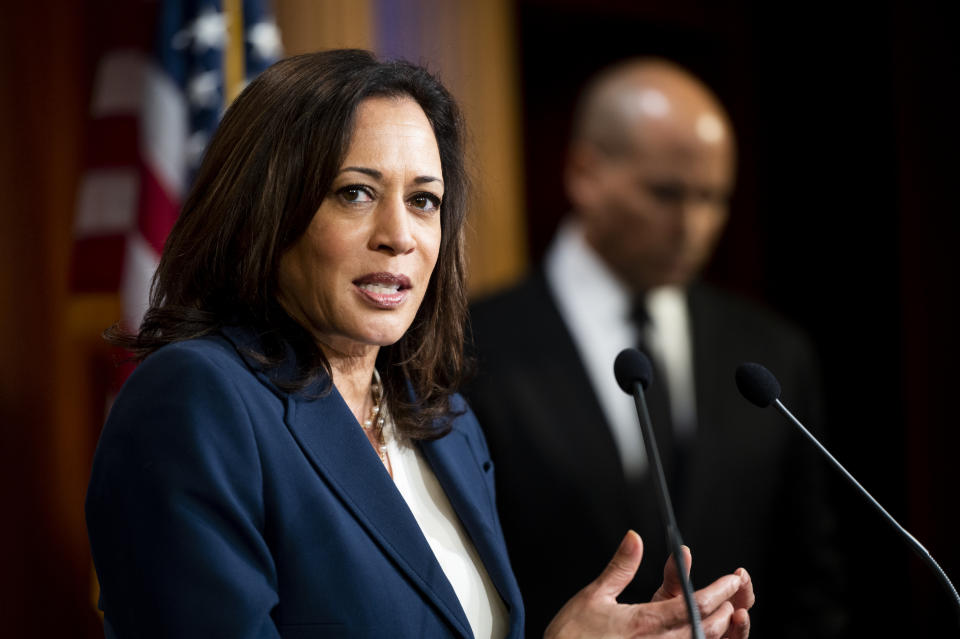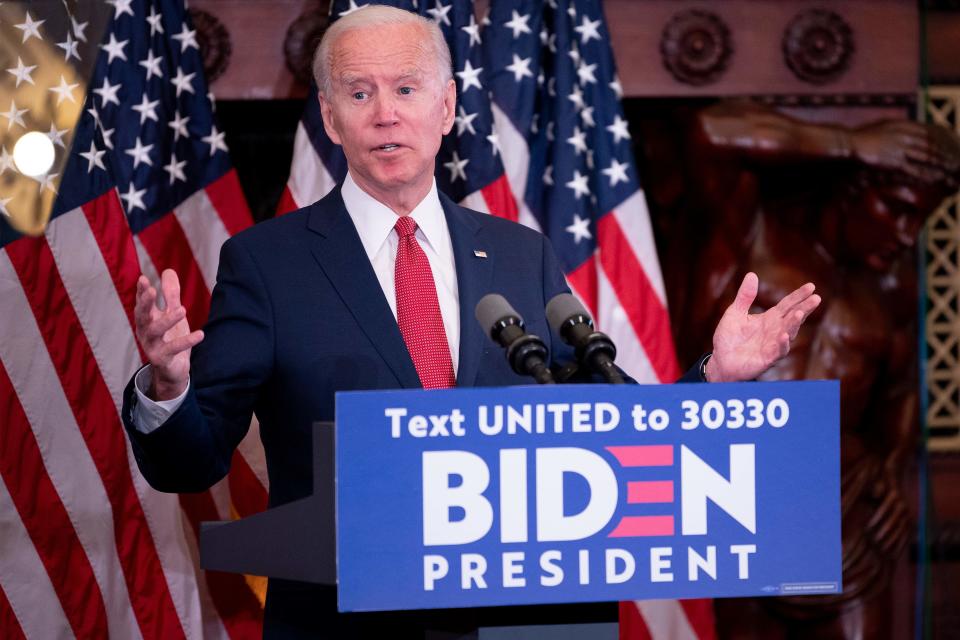The risk for Biden if he picks a black running mate
Democrat Joe Biden has pledged to pick a woman as his running mate, and the moment seems right to choose a black woman, with racial tension flaring nationwide after the killing of George Floyd in Minneapolis.
That might hearten black voters and boost turnout of this important voting bloc, which would help Biden overall. But it could also cost Biden some support among white working-class voters he’s hoping to lure away from President Trump, making it a tricky decision forcing Biden to prioritize which group of voters he needs most.
“The question the campaign is going to have to wrestle with is which bloc of voters is going to deliver them the White House,” Ted Johnson, a scholar on race and politics at the Brennan Center, says on the latest episode of the Yahoo Finance Electionomics podcast. “Is it going to be winning those white working-class voters in the Rust Belt back into the Democratic camp? Or is it going to be increasing black turnout from where it was in 2016?”
Democrat Hillary Clinton won 89% of the black vote in 2016, with Republican Trump winning just 8%. But black turnout was 8 points lower in 2016 than it was in 2012, when Barack Obama ran for reelection. Had blacks voted in the same numbers in 2016, and Clinton won 89% of them, additional votes in urban centers such as Philadelphia, Detroit and Milwaukee probably would have flipped at least three swing states in Clinton’s favor and sent her to the White House, rather than Trump.

Johnson thinks it would be smart for Biden to choose a black running mate and risk the fallout among midwestern whites. “There is a real chance that rejecting a black candidate will be part of some voters’ calculation,” Johnson says. “I think the advantage to be gained from increasing black turnout is worth the risk of any white voters who may be disenchanted with the selection of a black woman.”
[Check out other episodes of the Electionomics podcast.]
Sen. Kamala Harris of California seems to have the best odds of joining the former vice president on the Democratic ticket. As former California attorney general, she’s been elected to both statewide and national office, and she has strong name recognition thanks to her own presidential run last year. Other prominent black women, including voting rights advocate Stacey Abrams, Rep. Val Demings, and former National Security Adviser Susan Rice are less well-known, with little or no national leadership experience as an elected official.
Minnesota Sen. Amy Klobuchar was a leading candidate before the May 25 killing of Floyd, but her association with Minnesota may now be disqualifying. In 2006, Klobuchar left her job as a county prosecutor after being elected to the Senate around the same time her office was investigating the same cop now accused of murdering Floyd. Her successor chose not to prosecute, and both Klobuchar and the prosecutor’s office say she was not involved in the decision. But having to explain away a racially tinged case is a heavy liability for a potential running mate, especially now.

Biden could also choose Sen. Elizabeth Warren, in an effort to secure the votes of liberal Democrats who wouldn’t vote for Trump but might stay home. Or he could choose a governor such as Gretchen Whitmer of Michigan, which is a crucial swing state that could help determine the overall winner in November.
Ordinarily, running mates aren’t a decisive factor in presidential elections. They don’t necessarily help win their home state if it’s contentious, or bring out a lot of voters who wouldn’t otherwise show up. It could be different with Biden. If he wins, Biden will be 78 when he takes office. There’s a good chance he’d serve just one term, putting his vice president in pole position for the 2024 election. So Biden’s VP nominee could be just four years from the Oval Office herself.
All of these factors seem to favor Harris, who’s 55, 22 years younger than Biden. “I think it’s her,” Johnson says. “Even though she seems like the right choice at the moment, it’s not a slam dunk and a lot of campaign work will need to be leveraged if it's going to a render the advantages that seem apparent. But I think among the four under consideration, she has the best upside for a delivering victory for the Biden campaign.”
Rick Newman is the author of four books, including “Rebounders: How Winners Pivot from Setback to Success.” Follow him on Twitter: @rickjnewman. Confidential tip line: rickjnewman@yahoo.com. Encrypted communication available. Click here to get Rick’s stories by email.
Read more:
Get the latest financial and business news from Yahoo Finance
Follow Yahoo Finance on Twitter, Facebook, Instagram, Flipboard, SmartNews, LinkedIn, YouTube, and reddit.


